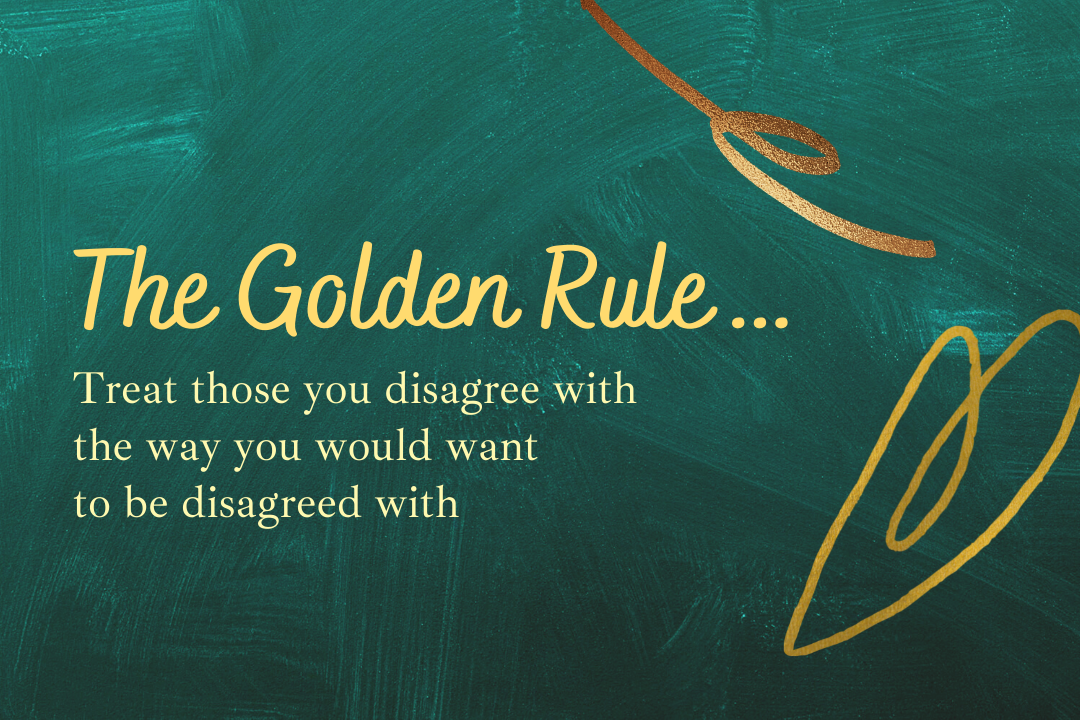“You’re Not As Crazy As I Think: Dialogue in a World of Loud Voices and Hardened Opinions”
That’s the title to a book written by one of my old professors. And while I don’t agree with everything in his book, I do agree with the main thesis: what if passion for truth was found, not in the loudest voice and most unshakable convictions, but rather in the resolve to listen to and learn from others? That because as Christians we believe ALL people are made in the image of God, that we should learn how to listen, to hear, and to learn from groups so often marginalised by our biases.
We currently live in quite divisive times. As Christians, we need to be willing to do the hard work of having honest dialogue, doing so in a charitable fashion. In his first letter, the apostle Peter encourages his readers, saying,
“But in your hearts revere Christ as Lord. Always be prepared to give an answer to everyone who asks you to give the reason for the hope that you have. But do this with gentleness and respect.” (1 Peter 3:15)
Or James in his letter,
17 But the wisdom that comes from heaven is first of all pure; then peace-loving, considerate, submissive, full of mercy and good fruit, impartial and sincere. 18 Peacemakers who sow in peace reap a harvest of righteousness. James 3:17-18)
We could also consider taking Jesus’s golden rule and applying it to dialogue, “treat those you disagree with the way you would want to be disagreed with.”
So with that in mind, what are some ways that we can disagree with people while still respecting them as image bearers of God?
I have outlined some answers to that question below, and I’m not saying that you need to use these phrases in a cookie-cutter fashion, but to recognize the spirit in them and apply them to your own conversations. The key is trying to respect and honour the person we disagree with, instead of treating them as brain-washed, uninformed, or some sort of pariah, like many people are doing at the moment.
Here’s some possible starting points…
“I am sure we share many common values and agree on quite a number of things.”
“I respect that you have thought carefully about these matters, as I have, but let’s just accept that we weigh some things rather differently.”
“I accept that you are a thoughtful and responsible person, and that you have some strong concerns. I know we are both wanting to do whatever we believe is best.”
“We seem to have come to different conclusions on this, but let’s just respect each other and not let our disagreements come between us”.
“I accept that either of us might be wrong on some things.”
“Maybe I’ll change my mind later, but meanwhile, let’s just agree to disagree, in a friendly and respectful way.”
“I admit it’s possible that you could have engaged more widely than I have and seen things that could give a reasonable person pause. I just haven’t encountered that yet, personally.”
“I’m so sorry how these matters have impacted on you so deeply. It must be very difficult.”
It’s easy and comfortable to just write off people we disagree with. But Jesus calls us to something grander. And when we respect people enough to truly listen to them, we might be surprised to find out that there are areas of agreement we never knew existed.









0 Comments